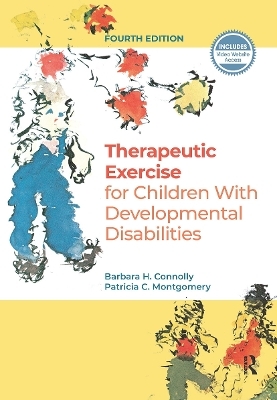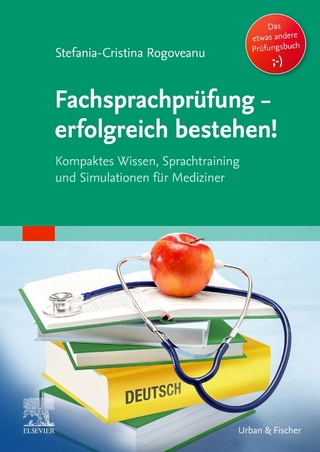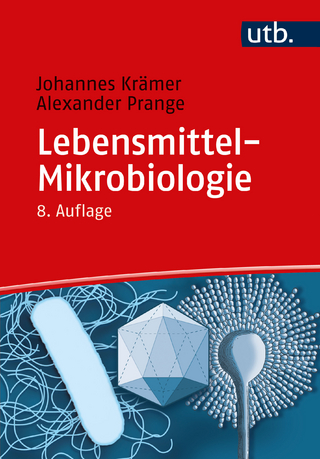
Therapeutic Exercise for Children with Developmental Disabilities
SLACK Incorporated (Verlag)
978-1-63091-576-6 (ISBN)
Throughout the course of the text, Drs. Barbara H. Connolly and Patricia C. Montgomery present case studies of 5 children with various developmental disabilities to bring a problem-solving approach to each individual chapter topic. The case studies include 2 two children with cerebral palsy (GMFCS Levels I and V), a child with myelomeningocele, a child with Down syndrome, and a child with developmental coordination disorder and attention-deficit hyperactivity disorder.
Each chapter’s examination, evaluation, and intervention recommendations are accompanied by specific treatment objectives and therapeutic activities, plus a companion website with 17 videos, which contains 90 minutes of content to illustrate concepts. Recent research and clinical recommendations, as well as related references, are also provided in each chapter.
This Fourth Edition utilizes the American Physical Therapy Association’s Guide to Physical Therapist Practice 3.0 and the World Health Organization’s International Classification of Functioning, Disability, and Health--Children and Youth as its framework. The focus of the chapters is on children’s participation and empowerment, rather than body function and structure.
Examples of new and updated topics in the Fourth Edition:
• Practice in the NICU
• Early mobility strategies
• Communication strategies with children and families
• Aquatic therapy
• Upper extremity constraint-induced therapy
• Mirror therapy
• Lower extremity treadmill training
With helpful videos, informative figures, and compelling case studies, Therapeutic Exercise for Children With Developmental Disabilities, Fourth Edition is the perfect resource for both students and practicing clinicians.
Barbara H. Connolly, PT, DPT, EdD, C/NDT, FAPTA received her BS degree in Physical Therapy from the University of Florida, a DPT degree from the University of Tennessee, an MEd degree in Special Education with a minor in Speech Pathology, and an EdD in Curriculum and Instruction from the University of Memphis. She is a Professor Emeritus at the University of Tennessee Health Sciences Center, where she was a faculty member for 37 years, served as Chair of the Physical Therapy Department for 24 years, and as Interim Dean of the College of Allied Health Sciences for 2 years. Dr. Connolly has taught in physical therapy programs at numerous academic institutions, including the University of Mississippi, the University of Miami, and the University of Indianapolis. She served as a Trustee for the Foundation for Physical Therapy, a foundation dedicated to funding physical therapy research, for 9 years and was President from January 2015 to December 2016. She served as President of the International Organization of Physical Therapists in Pediatrics, a subgroup of the World Confederation of Physical Therapy, from its inception in 2007 until 2015. She also has served on the American Physical Therapy Association (APTA) Board of Directors, on the APTA Pediatric Specialty Council, and the American Board of Physical Therapy Specialists. She was President of the Section on Pediatrics of the APTA from 2002 to 2006. She received the Bud DeHaven Leadership Award, the Research Award, and the Jeanne Fischer Distinguished Mentorship Award from the Section on Pediatrics. She is a recipient of the Golden Pen Award from the APTA for her publications. In 2002, she received one of the highest honors from the APTA when she was named a Catherine Worthingham Fellow. In 2014 she received the Marilyn Moffat Leadership Award, and in 2015 she received a Lucy Blair Service Award. She is the first author of more than 32 publications in peer-reviewed journals, has written 21 book chapters, and has coauthored or edited 7 textbooks for physical therapists. She is certified in neurodevelopmental treatment and in sensory integration. She continues to provide professional development courses both nationally and internationally. Patricia C. Montgomery, PT, PhD, FAPTA received her BS degree in Physical Therapy from the University of Oklahoma, Norman, and her MA in Educational Psychology and PhD in Child Psychology from the University of Minnesota, Minneapolis. Dr. Montgomery’s clinical pediatric experience includes working in an outpatient hospital setting, a newborn intensive care unit, and for the St. Paul, Minnesota, Public School System. She also had a private practice and was the owner of a home health agency providing pediatric services in the Twin Cities area. Dr. Montgomery served on the APTA Board of Directors and as President of the Minnesota Chapter, APTA. Dr. Montgomery received the Pediatric Section, APTA, Research Award and the Bud DeHaven Award; the Minnesota Chapter, APTA, Outstanding Service Award; and the APTA Dorothy Briggs Memorial Scientific Inquiry Award and Lucy Blair Service Award. She also gave the inaugural Luise Lynch Lectureship at the University of Oklahoma, the Third Annual John H. P. Maley Lecture at the APTA Annual Conference, and the Fifth Annual Jack Allison Memorial Lectureship at the University of Minnesota. Dr. Montgomery is the first author of 17 publications in peer-reviewed journals and has coauthored several textbooks for physical therapists. Dr. Montgomery taught in physical therapy programs at several academic institutions, including the University of Minnesota, Minneapolis; Hahnemann University, Philadelphia, Pennsylvania; and the University of Tennessee Health Sciences Center. She continues to provide continuing education courses on the topic of children’s brains and neuroplasticity.
Chapter 1:Foundational Sciences for Intervention Chapter 2: Examination and Evaluation: Tests and Measures Chapter 3: Establishing Functional Goals and Organizing Intervention Chapter 4: Communications to Establish Rapport With Children and Their Families Chapter 5: The Children: History and Tests/Measures Chapter 6: Applying the Guide to Physical Therapist Practice 3.0 Chapter 7: Physical Therapy in the Neonatal Intensive Care Unit Chapter 8: The Influence of Oral, Pharyngeal, and Respiratory Functions Chapter 9: Sensory Considerations in Therapeutic Interventions Chapter 10: Developing Postural Control Chapter 11: Facilitating Early Mobility Chapter 12: Assessment and Development of Gait Skills Chapter 13: Promoting Upper Extremity Control Chapter 14: Selection and Use of Assistive Technology Devices Chapter 15: Physical Therapy in the Educational Environment: Chapter 16: Aquatic Therapy Chapter 17:The Children: Physical Therapy Management Chapter 18:Issues in Aging in Individuals With Lifelong Disabilities
| Erscheinungsdatum | 01.02.2020 |
|---|---|
| Verlagsort | Thorofare |
| Sprache | englisch |
| Maße | 178 x 254 mm |
| Gewicht | 1270 g |
| Themenwelt | Medizin / Pharmazie ► Medizinische Fachgebiete |
| Medizin / Pharmazie ► Physiotherapie / Ergotherapie | |
| ISBN-10 | 1-63091-576-9 / 1630915769 |
| ISBN-13 | 978-1-63091-576-6 / 9781630915766 |
| Zustand | Neuware |
| Informationen gemäß Produktsicherheitsverordnung (GPSR) | |
| Haben Sie eine Frage zum Produkt? |
aus dem Bereich


